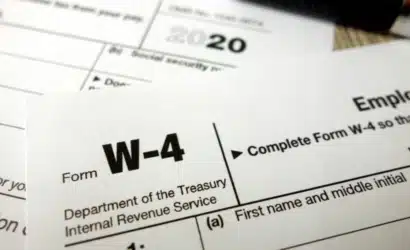BLOGS
What Records Are Needed for Insurance Payroll Audits?

Each year, your workers’ compensation coverage (and premium) is calculated based on your business’ estimated payroll and a range of other factors, including the size of your business, your industry, and the composition of your workforce. Once a policy period has passed, a premium audit is conducted to confirm that your business paid the correct amount for workers’ compensation insurance, comparing the policy period estimate with your actual reported payroll and salaries.
Understandably, many employers have questions about how to prepare for an insurance payroll audit, including which verification records and documents are needed to quickly complete a final premium audit. In this article, we’ll offer guidance on how to gather the required payroll, workforce, and insurance certificate documents to prepare for an insurance payroll audit and how a qualified payroll provider can help you streamline this process.
How to Prepare for Your Insurance Payroll Audit
By the end of a workers’ compensation policy term, businesses must directly or indirectly supply payroll audit information to any state bureau in a jurisdiction where the business operates. To simplify the process for an insurance auditor and to ensure quick processing, employers should begin organizing payroll and workforce data in advance of the audit.
The first step is to generate a list of any workers who received W-2s, 1099s, or were paid for their work (including under $600) during the applicable audit period. Remember that this may include employees or workers who no longer work for the business, but who did complete work and receive pay during the coverage period. Be sure to list and account for part-time, full-time, and former employees first.
Next, it’s important to consider contractors and subcontractors. For those who have (or had) their own workers’ compensation insurance, you will need to secure a copy of their certificate of insurance applicable to the audit period. You must also share all payroll data related to contractors without their own workers’ compensation insurance policy and include their information alongside the data of full-time, part-time, and former employees. We’ll explore the purpose of employee and workforce classification for an insurance payroll audit more in the next section.
Verification Documents Required for an Insurance Payroll Audit
Insurance payroll/premium audits emphasize employee classification codes because this impacts the amount you pay as a business to insure them. Since it’s important for auditors to have comprehensive information about your workforce and payroll history during the audit period, a number of verification documents are required for the process.
As a general rule, once you’ve completed the employee and worker/contractor list we recommended, you’ll want to add the following information regarding each individual:
- Full name
- Job title and a description of their job responsibilities
- Total Gross Earnings or Total Amount Paid
- Bonuses Paid
- Overtime Earnings
- Tips or Other Gratuities Received
- Copy of their Certificate of Insurance (applicable to contractors or subcontractors with their own workers’ compensation policies)
You will also need to share the following documents and information with your auditor to ensure compliance with state and federal requirements:
- Employers Quarterly Federal Tax Return Form 941 or 943. Use the four quarters closest to the policy period.
- Business Payroll Journal or Register
- All Federal W2, W3, or 1099 transmittals
- A calculation of all overtime wages paid, which should be summarized by job/employee classification
All of the steps and documentation we’ve listed above apply to a gross payroll general liability audit. Some businesses will undergo a general liability audit based primarily or partially on gross sales, in which case much of the same information is required, plus the following:
- Income Statement and/or a Profit and Loss Statement covering the audit period.
- A sales journal or journals to catalog gross sales (omitting deductions resulting from discounts or returns).
- Some additional tax information, including but not limited to state sales tax returns and other income statements.
FAQs for Insurance Audits
How long does an insurance payroll audit take?
Although this can vary depending on your insurance company and the specifics of your business, the audit process always begins soon after a policy expires. In most cases, audits are completed within 60-90 days following the expiration of your policy. The more organized you are and the more quickly (and accurately) you can provide requested payroll and workforce data, the faster the auditing process can be completed.
How does the final audit affect payments, premiums, or penalties for noncompliance?
You are required to participate in a final premium audit following the end of any policy period. At the end of each audit, your insurer can offer an explanation of your business’ audit results and how it will impact payments or your premium in the subsequent policy period. If you do not participate in the audit, your workers’ compensation insurance policy will be canceled and you could be subject to surcharges from the state for audit noncompliance. A late or post-surcharge submission of audit information could lead to a revised (increased) premium.
Optimize Payroll and Workers’ Compensation
Regardless of whether your business needs to prepare for a gross payroll or a gross sales general liability audit (or some combination of the two), we can dramatically simplify the audit process and help your business automate calculations, quickly generate requested reports & data, and furnish all required documentation to an auditor on your business’ behalf.
Ready to streamline your company’s payroll and HR processes? Take the first step to connect with our experts today.
DISCLAIMER: The information provided herein does not constitute the provision of legal advice, tax advice, accounting services or professional consulting of any kind. The information provided herein should not be used as a substitute for consultation with professional legal, tax, accounting, or other professional advisers. Before making any decision or taking any action, you should consult a professional adviser who has been provided with all pertinent facts relevant to your particular situation and for your particular state(s) of operation.












